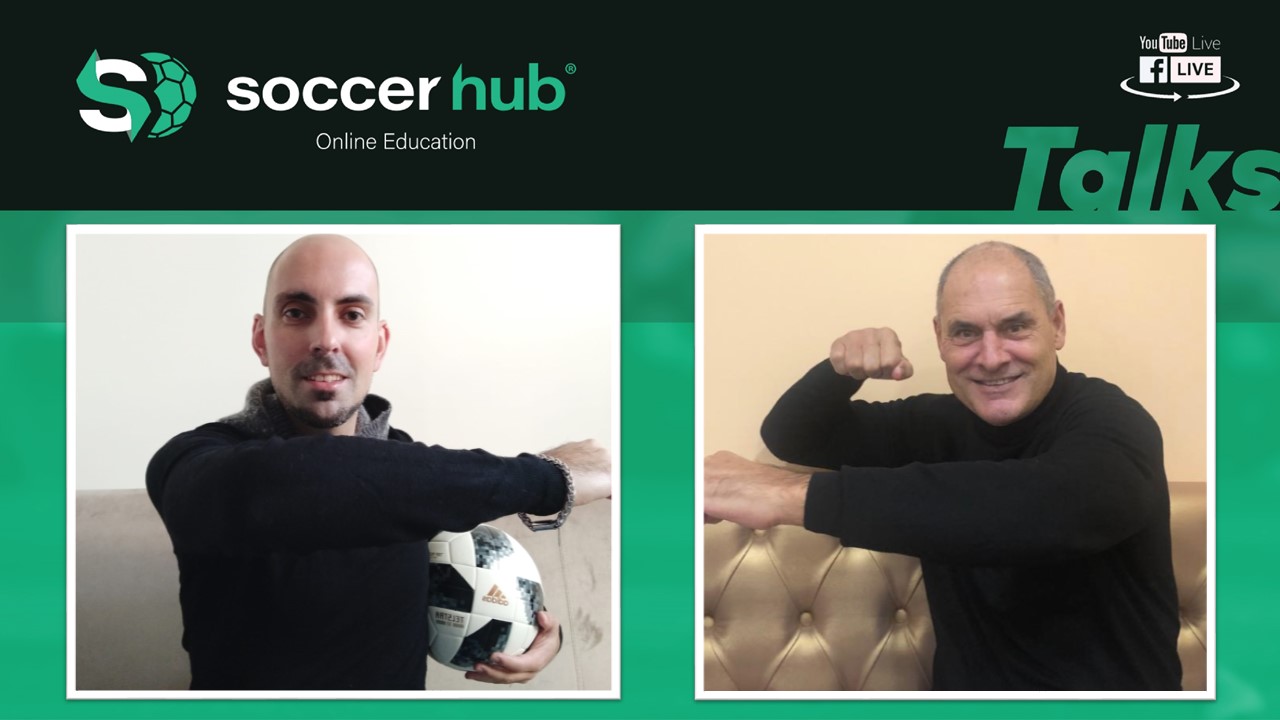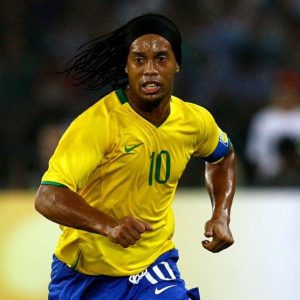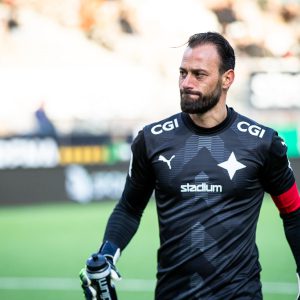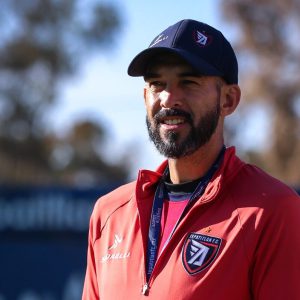

Silvino: “In a single month, I have produced almost 1800 footwork exercises”
Silvino de Almeida Louro is one of the most winning goalkeeper coaches in the world and has an enviable curriculum, training clubs such as FC Porto, Chelsea, Inter Milan, Real Madrid, and Manchester United, aside from the Portugal national football team. Read the full interview conducted by Nuno Milheiro below.
Silvino started his journey in 1976, in the historic Portuguese club Vitória de Setubal, and recognizes that his first steps were not easy.
There were people who believed in me and my abilities. I did not let them stop believing in me. Being a goalkeeper and then a coach is a huge pleasure. I want to have more years of life and health to enjoy moments in football. I am still able to work another five or six years”, he admitted.
The passion for goalkeeping began at a very young age and had to be reconciled with his work. “I started working at a bakery at 14. Since we were ten brothers, I had to be one more to help paying the bills. My shift started at midnight and ended at 9 am. Afterwards, I usually had a hearty breakfast, slept until 4 pm, and took a bus at 4:30 pm to train at Vitória de Setubal. When I turned 18, I started playing in the first team. At that period, it was hard for a goalkeeper of that age to play for any first team in the Portuguese league. When I joined, I immediately established myself in the starting eleven on a consistent basis, through coach Carlos Cardoso”.
Silvino won six Portuguese Leagues, three Portuguese Cups, and two Super Cups as a goalkeeper. The first trophy, the Portuguese Championship in the 1986-1987 season, was the most striking. At that same time, he would even reach the “dobradinha”, winning the Portuguese Cup against Sporting CP, whose goalkeeper was Vítor Damas.
I wanted to be like him. He flew to the ball with an elegance that everyone on the bench loved to see. I had a friend who owned a barbershop and I used to go there just to read the news about Vítor Damas. Having won a trophy against him was a tremendous joy. Besides, I have to highlight the kindness he had when we exchanged our shirts. I will never get rid of his shirt. When he passed away, very young, I felt really sad”, he says.
Surprisingly, Eusébio ended up being Silvino’s first goalkeeper coach when he was playing in Benfica. “When supporters came to watch the training, Eusébio used to get even more inspired. One day I told him ‘Coach, you probably have a football match this weekend. Are you training yourself or are you training me?’ and we both laughed.”. “From the age of 29 or 30, I already had in mind that when I stopped playing I would be a goalkeeper coach. I started watching some VHS tapes sent by a Portuguese man who lived in Germany and contacted me after the 1988 European Cup Final, which we lost with PSV Eindhoven. I checked out the training exercises and started doing them my way”, he added.
In the 1999-2000 season, when playing for Salgueiros, he realized it was the ideal occasion to finish his career as a goalkeeper and to start being a coach. “The speed I had was no longer the same, although my experience managed to disguise it. So, I started to coach goalkeepers at Salgueiros, with Dito. Meanwhile, Jozef Mlynarczyk had left FC Porto and they had been without a goalkeeper coach for three weeks. We were playing at home, against Alverca and FC Porto’s president Pinto da Costa was there and wanted to talk to me. ‘I want you to be the goalkeeper coach of FC Porto’, he said. That was my big steppingstone. A month after being at FC Porto, I started training the Portuguese national team’s goalkeepers. Salgueiros and FC Porto opened the doors to a career in which I won 28 titles, in countries such as Portugal, England, Italy, and Spain”.
He believes that the goalkeeper position was the one that suffered the most structural changes in the last 30 years, requiring a permanent adaptation from the athlete. “Nowadays, it all depends on what the coach wants the goalkeeper to do. Does he want the goalkeeper to play short or long? In my case, for instance, I used to speak with José Mourinho and ask what he preferred. One day, we had a game against Liverpool, and I asked him directly about the way he needed David de Gea to play. If we decided to play long, Virgil van Dijk would win every duel. We could also use Romelu Lukaku, a physically strong player, to jump with him, but the full-backs would have to go deep to win the second balls. If you want to play short, defenders must have confidence in their goalkeeper. If they are not afraid to play that way, they surely will make a goalkeeper feel safe. A goalkeeper has to have a solid personality. When he makes a mistake, he cannot be afraid to repeat his actions on the pitch and merely want to kick the ball forward straight away. That greatly undermines the coach’s game model”, he commented.
The goalkeepers and their coaches are considered a micro-family within the larger family. They must nurture their relationships with respect, contributing to a desirable working environment in the dressing room. “My three goalkeepers always accompanied the team in match days and warmed up as if they were going to play. Imagine that a goalkeeper gets injured during the warm-up. The substitute has necessarily to play, which means I do not have any goalkeeper on the bench. What if he gets a red card? Where is his possible substitute? It happened to me once, against Newcastle. Peter Cech got injured, so Carlo Cudicini played, and Lenny Pidgeley went to the bench. As a precaution, I started taking three goalkeepers, and José Mourinho approved. Any club in the world does the same now. Sometimes, smaller teams do not, only because they cannot afford an additional meal or hotel accommodation”.
The differences in English and Italian training methodologies are undeniable for him. “In Italy, the work is very technical, unlike England, which has endless shots on goal. An English goalkeeper coach usually kicks the ball the entire training. I cannot see a goalkeeper defending 30 or 40 shots! The worst thing that can happen to a player is knowing that he is going to do the exact thing he did in previous training sessions. He loses motivation and does not perform properly on the pitch”.
Silvino started designing and documenting all his training exercises since his journey as a goolkeeper coach has begun.
You may think that an exercise I developed in 2001 is already outdated, but it is not. I still can adjust it so that it remains valid for 2021. However, there were many other exercises I have idealized at that time and now I just think ‘How was it possible? What kind of coach was I?’. In a single month, I have produced almost 1800 footwork exercises, complemented with four defenders and two midfielders working. We cannot stop improving”.
The height of a goalkeeper is a feature often discussed as an imperative factor in his future success. Nevertheless, Silvino dismisses it as decisive. “Tall goalkeepers? Sometimes, they are there to show some respect. Logically, a goalkeeper with 1.87 or 1.88 meters may have the ideal height. At 1.94 or 1.95 meters, he may express some difficulties in terms of lateral speed. But one with 1.82 or 1.83 meters cannot be considered bad”.
Information is power. Access to standardized data that supports the decision-making process is just a click away and could play a vital role in team performance. “In 1988, I played the European Cup Final for Benfica against PSV Eindhoven and went into the pitch without a single piece of information about how opponents scored penalties. I only knew about Ronald Koeman because he was the one who usually scored. It is essential to know how the players behave during the different moments of the match, the way they shoot, etc. These are details that I need to analyze with my goalkeepers. At Inter Milan versus Barcelona, in the 2009-2010 Champions League edition, I advised Júlio César to be careful with Lionel Messi’s typical move. I worked that specific situation with him about ten times. And that precisely occurred in that match! It was one of the best saves of his career. I have other similar episodes with Iker Casillas, Vítor Baía, and Peter Cech that have also given me victories. Almost every goalkeeper I have worked with has remarkable saves”.
The parallelism established between the football and handball goalkeepers is, for him, inevitable, given the resemblance of the adopted movements.
You can see it frequently when they come out of the box, in one on one scenarios. In the past, the goalkeeper would immediately be focused on the ball and commit penalties. Today, they leave the box with extended hands and legs. That is the future, and I have been talking about it for a long time”.
Given the priceless value of information, the scouting process is never neglected and is something that Silvino truly appreciates. “When I want to see a young goalkeeper, the first thing that I focus on is the height of his parents. If they are quite short, only his technical quality matters. I had to write reports to the Head of the Football Department several times to find out the characteristics of a certain goalkeeper and how he behaved. When I do so, I always take into account where he played and who his coaches were. Before signing for my team, the first thing I do is to get in touch with his goalkeeper coach to find out more about how he plays. Personality is surely one of the most relevant details. If I eventually joined a team now, the first thing I would do would be to know who the goalkeepers are, where they played, the number of matches they participated in, their ages and heights, etc”.
Silvino believes that being a former goalkeeper is not a mandatory condition for being a capable goalkeeper coach. “It helps a lot due to the experience acquired throughout our career. However, people can also be successful as long as they study and understand how they can develop their athletes”, he completed.
Get to know more about Soccer HUB!
Follow us on Facebook!
Categories
Latest Courses
-
9 Lessons
-
1 Lesson
-
6 Lessons
You May Also Like
-
-
August 1, 2022
-
-
June 3, 2022
-
-
May 27, 2022





